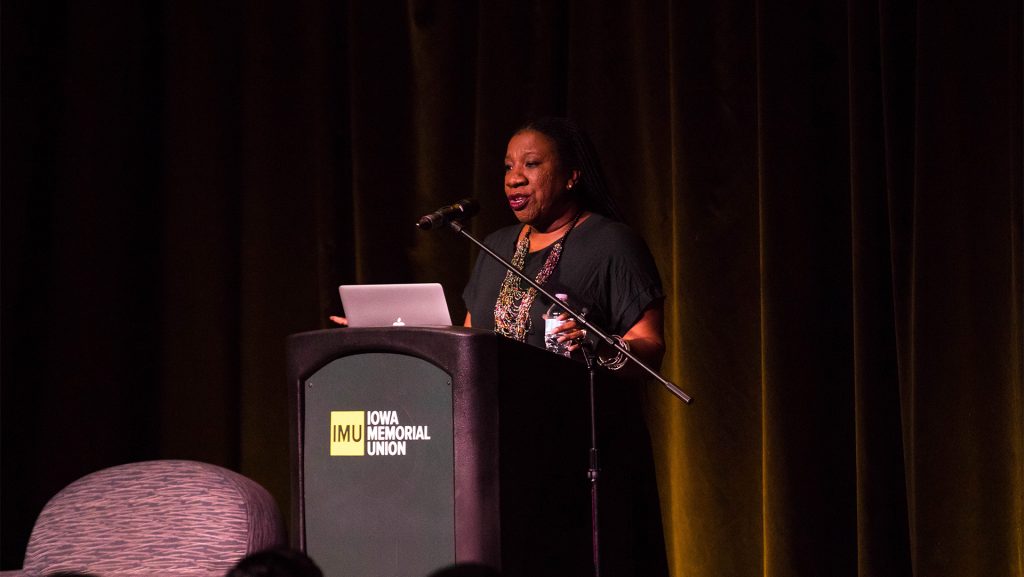#MeToo movement founder Tarana Burke shared her vision for the global phenomenon of solidarity with survivors of sexual harassment and assault Tuesday evening in the IMU.
Burke has been devoted to civil-rights activism and social-justice work for more than 25 years. She is the senior director of Girls for Gender Equity in Brooklyn, New York, and works to support survivors of sexual abuse. She was also featured in a group of “silence breakers” as one of Time’s 2017 people of the year.
Burke shared the moments that first inspired her to work to help survivors of sexual violence heal. While working at a youth leadership camp, a young camper revealed to Burke her story of sexual violence. At the time, Burke found it difficult to tell the young girl that sexual assault had affected her as well.
“The one thing I couldn’t focus on and I couldn’t tell her was that this had happened to me, too,” Burke said. “As soon as she walked away, I realized that was all I needed to say.”
RELATED: UI faculty and rape-prevention advocates host forum discussing #MeToo movement
Burke said the movement was born inside of her in that moment.
Contrary to popular belief, the #MeToo movement did not begin in 2017. Burke first coined the phrase in 2006 to support young women of color who survived sexual abuse. She founded Just Be Inc. specifically to assist young women of color.
“Me too really was born out of taking a step back and trying to think about what I needed at this age,” Burke said. “What could someone have said to me at 14 or 12 or 9 that would have changed the trajectory of my life?”
The national conversation on sexual violence picked up wide-scale momentum in October 2017 after numerous powerful men, including movie mogul Harvey Weinstein, were accused of sexual abuse and harassment — the #MeToo campaign became rampant across social media.
Burke said 12 million people shared the hashtag in the first 24 hours.
Burke emphasized, however, that this was not a movement centered on taking down powerful men.
“This is a movement for survivors. This is a movement about making sure survivors have the resources they need to craft their own healing journey,” Burke said. “It’s about making sure that the most marginalized amongst the survivors have the resources that they need first. It’s about harnessing the power that we have as survivors.”
RELATED: Us, too
Burke’s lecture was hosted and coordinated by the University Lecture Committee and sponsored by the UI Interfraternity Council.
“Our committee is always looking to address the big issues facing not only our community but the country as a whole,” Lecture Committee member Caleb Bell said. “We want to be able to bring [the conversation on sexual assault] to Iowa City.”
Lecture Committee member and UI student Jamie Porter said sexual assault is an issue that affects everyone.
“The UI, like many college campuses across the nation, has been affected by sexual assault and violence, [it] impacts everyone,” Porter said. “But like we have seen this past year, there are people who are wholly dedicated to ending sexual assault and violence.”



